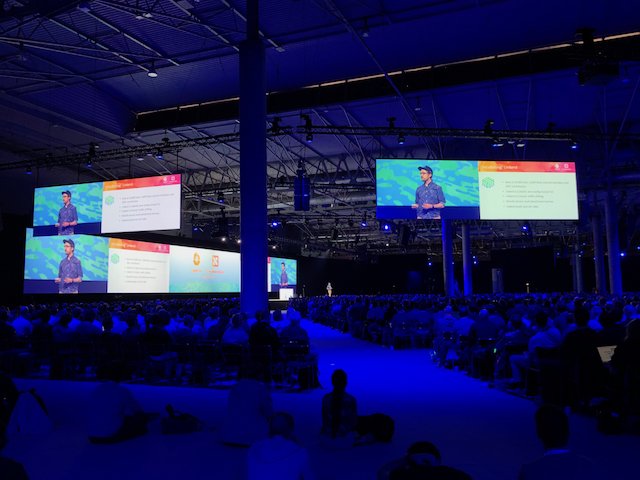

Today we’re happy to announce the release of Linkerd 2.4. This release adds traffic splitting and Service Mesh Interface (SMI) support, graduates high-availability support out of experimental status, and includes a tremendous list of other improvements, performance enhancements, and bug fixes.
(And did I mention Linkerd recently passed its third party security audit with flying colors?)
Linkerd’s new traffic splitting feature allows users to dynamically control the percentage of traffic destined for a service. This powerful feature can be used to implement rollout strategies like canary releases and blue-green deploys by incrementally shifting request traffic between Kubernetes services.
Support for the Service Mesh Interface makes it easier for ecosystem tools to work with Linkerd. This is already paying dividends: we’re happy to report that Flagger now supports Linkerd! Flagger is a progressive delivery operator that combines metrics and traffic splitting, and a great example of the sort of higher-order operations that the service mesh unlocks. (The Linkerd team is the largest contributor to SMI, so we’re excited to see this coming together so nicely.)
Finally, Linkerd 2.4 graduates the high availability (HA) control plane mode out of experimental status into a fully production-ready feature, and introduces a host of other improvements, performance enhancements, and fixes, including:
- A new
linkerd edgescommand for auditing TLS and identity of connections between resources - A two-phase installation process that splits cluster-level and namespace-level privilege requirements, for security-conscious Kubernetes adopters who don’t let just anyone change things on the cluster.
- A debug sidecar for easier inspection of pod traffic
- A fresh security audit from Cure53, passed with flying colors
- And much, much more–read the full Linkerd 2.4 Release Notes for details!
Linkerd 2.4 is our third major release of 2019. Earlier this year, Linkerd 2.3 enabled mutual TLS by default, making authenticated, confidential communication between meshed services the norm for all Linkerd users. In February, Linkerd 2.2 introduced automatic retries and timeouts, adding powerful reliability mechanisms that allow Linkerd users to automatically recover from many of the partial failures endemic to distributed systems.
We’ll be discussing the fun features in 2.4 and the plans for 2.5 in our next Linkerd Online Community Meeting later this month. Be sure to join us there.
Ready to try Linkerd? Those of you who have been tracking the 2.x branch via our weekly edge releases will already have seen these features in action. Either way, you can download the stable 2.4 release by running:
curl --proto '=https' --tlsv1.2 -sSfL https://run.linkerd.io/install | shLinkerd is a community project and is hosted by the Cloud Native Computing Foundation. If you have feature requests, questions, or comments, we’d love to have you join our rapidly-growing community! Linkerd is hosted on GitHub, and we have a thriving community on Slack, Twitter, and the mailing lists. Come and join the fun!
(Image credit: Robert Couse-Baker)



